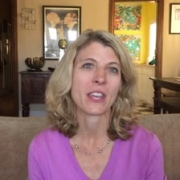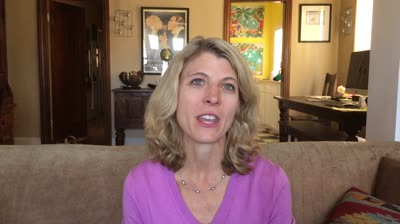
Yes, I’m that odd duck that takes a picture of a Southwest napkin but I loved this slogan. In a world full of no, we need yes!
I’m quick to say, “no,” to things in my life so when I see a napkin that urges me to say, “yes,” it’s a nice reminder.
Much of what we say, “yes,” and “no” to in life has to do with how we hold things and the degree to which we react or don’t react in life.
Reactivity can be both good and bad.
In a positive sense, we react in such a way that we contributes to our best good. For instance, if I’m a football player and the ball is thrown to me, catching it would be an exceptionally good thing to do. Running with the ball in my hands would be even better!
In a negative sense, we react to things happening in the environment beyond what is necessary to our survival or our success. Instead of simply noticing what is happening, we get stressed, we worry, and we bleed out our energy by imagining all of the bad things that will transpire. This to me is a colossal, metaphoric, “no.” This puts our bodies and minds on over-drive. Systems then constrict and shut down; panic inhibits breath, flow, and movement.
I’m classic at saying, “no”, particularly when good things are happening in my life. When things get thrown at me that I want to do, that I want to say, “yes,” to, I panic. The more good stuff that comes my way, the more I tell myself no. The voices in my head say that I’ll get too tired, too stressed, too busy, too overwhelmed. Then I fear something catastrophic will happen. I tell myself that I’ll choke. I’ll let someone down. I’ll turn my back on one thing as I go after another. I tell myself that I can’t have it all. I can’t make money doing what I love. I can’t have two careers. I can’t have a career + love. I can’t, I can’t, I can’t, I can’t.
“In a world full of no, we’re a plane full of yes.” Thank you, SouthWest.
Our reactivity IQ has to do with how we notice our thoughts and physicality around the day-to-day in our lives.
Can I go with the flow? Can I just breathe through it? If I get tired, so what? Can I just be tired? Or do I have to worry about being tired? If I get overbooked, can I ride the wave and just hunker down for a bit, knowing I can pull back later? How do we say yes, and yes, and yes?!!!
Because yes = possibilities, joy, solutions, and expansion.
No simply means no.
What’s your reactivity IQ and what are you saying yes and no to?
Source: Lise’s Letters
What’s Your Reactivity IQ?

















